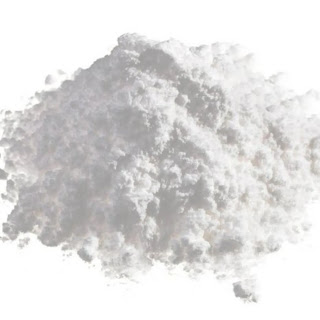Implications for Autoimmune Disorders Caused by Zinc Picolinate
Autoimmune diseases occur when the immune system malfunctions and begins attacking the body's healthy cells, tissues, and organs instead of germs and viruses. Damage and destruction to the affected body parts may result from the chronic inflammation brought on by this immune system failure.
Scientists suspect a complex interplay between genetic predisposition, environmental influences, and hormone adjustments. Some autoimmune disorders, for instance, may be brought on by things like chemical or viral exposure. On the other hand, susceptibility to the disease may be inherited in some cases.
We've pinpointed around 80 different autoimmune illnesses, each with its own set of symptoms and possible organ systems affected. The following are examples of autoimmune diseases:
Pain, swelling, and stiffness in the joints are classic symptoms of rheumatoid arthritis, a chronic inflammatory illness.
Lupus is a chronic autoimmune illness that manifests itself in a broad variety of ways, affecting the skin, joints, and internal organs. Symptoms of lupus might include extreme exhaustion, fever, joint pain, and a butterfly-shaped rash on the face.
Multiple sclerosis is an autoimmune illness that gradually worsens over time and affects the central nervous system, resulting in symptoms like tingling, paralysis, and spasms.
Damage to the pancreas causes type 1 diabetes, an incurable disease that results in the body's inability to make insulin. Insulin is a hormone important for maintaining normal blood sugar levels.
Abdominal discomfort, diarrhoea, and rectal bleeding are just some of the symptoms of inflammatory bowel disease (IBD), a collection of autoimmune disorders that affect the digestive tract.
Due to the wide variety in presentation and course across affected individuals, autoimmune illnesses are notoriously challenging to diagnose. Symptom management, inflammation reduction, and control are common treatment goals for autoimmune illnesses. Medications including corticosteroids, NSAIDs, and immunosuppressive medicines, as well as behavioural interventions like exercise, stress management, and dietary changes, may be used.
Autoimmune disease causes
The condition may have multiple causes, including genetics, the environment, and hormones. There is mounting evidence that environmental factors, such as those listed below, can either directly cause or significantly contribute to the onset of autoimmune illnesses.
Some people's immune systems can become activated in reaction to illnesses caused by viruses, bacteria, or parasites.
Pollutants and toxins Heavy metals and pesticides, for example, may raise the chance of developing autoimmune illnesses.
Chronic stress has been linked to a compromised immune system and has been hypothesised to set off autoimmune reactions in susceptible individuals.
Fruits and vegetables, together with healthy fats, have been shown to lower the risk of autoimmune disorders by dietary changes, while a diet high in processed foods and sugar is linked to an increased risk of these conditions.
Some people's immune systems become overactive during puberty, pregnancy, or menopause because of the resulting hormonal upheavals.
It's possible that some people's genes make them more vulnerable to the effects of environmental triggers that can cause autoimmune illnesses.
The repercussions of autoimmunity
Some commonplace items that may exacerbate the symptoms of autoimmune disorders are as follows:
Inflammation: pain, swelling, and tissue damage can all result from chronic inflammation, which is a symptom of many autoimmune disorders.
Tissue damage: The immune system can cause harm to tissues like skin, joints, and the digestive tract if they are wrongly attacked.
Symptoms like weariness, shortness of breath, and altered bowel habits might be caused by organ failure, which is a common side effect of autoimmune illnesses.
Joint pain in rheumatoid arthritis is a good example of the chronic pain that can result from inflammation and tissue destruction.
Chronic and severe fatigue is a common symptom of autoimmune disorders.
Weakness and muscular atrophy can be symptoms of autoimmune illnesses like myasthenia gravis.
Overall, a person's physical, emotional, and social wellbeing can be severely compromised by autoimmune illnesses.
Position of Picolinate Zinc
Research into the mechanisms through which zinc picolinate might prevent or treat autoimmune disorders is ongoing. For proper immune system function, among other things, zinc is a mineral that plays an important role in many bodily functions. A healthy immune system can help prevent or lessen the impact of autoimmune illnesses.
Conduct of Immune Cells
Zinc's ability to modulate immune cell activity suggests it may be useful in the treatment or prevention of autoimmune disorders. The generation of cytokines and other immune cell regulators is influenced by zinc.
In addition, oxidative stress is a significant factor in autoimmune illness, and zinc may have antioxidant properties that protect against this.
Although zinc supplementation may have positive effects in preventing or treating autoimmune diseases, additional research is needed to discover whether or not this is the case and whether or not it is safe for those with autoimmune disorders.
Zinc Picolinate from Ephuroalabs
Zinc picolinate tablets from EphuroaLabs are vegetarian and corn-free, and they're a crucial part of the treatment for a wide range of illnesses and disorders. Supplements that have been the most successful around the world were verified as non-GMO by the Non-GMO Project. We exclusively employ state-of-the-art equipment when developing new products, so you know they'll be top-notch when they ship.
Conclusion
In sum, autoimmune illnesses are complicated problems that can have serious consequences for a person's health. Many autoimmune disorders require a multipronged approach to treatment, including medication, lifestyle adjustments, and constant communication with a healthcare specialist. When given the chance, people with autoimmune disorders can lead happy, productive lives.

.jpg)
Comments
Post a Comment